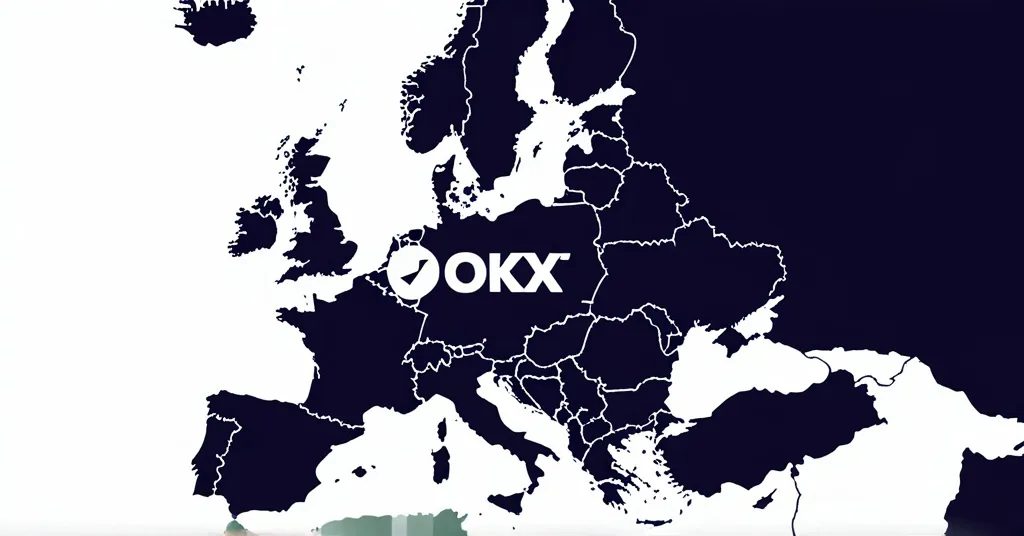OKX Secures MiFID II License, Boosts Regulated Crypto Trading in Europe

OKX Acquires MiFID II License to Expand Regulated Crypto Trading in Europe
Can OKX’s new MiFID II license revolutionize crypto trading in Europe? OKX has acquired a MiFID II license, set to expand its regulated services across the European Economic Area (EEA).
- OKX acquires MiFID II license through a company purchase in Malta.
- Expansion of regulated derivatives and investment products in the EEA.
- Pending final approval by the Malta Financial Services Authority (MFSA).
- Plans to offer institutional products like exotic options and hedging instruments.
- Already holds a Markets in Crypto-Assets (MiCA) license for localized crypto trading across the EU.
- Aims to improve institutional connectivity, add more fiat pairing options, and facilitate euro transactions.
- Supports over 240 tokens, 300 trading pairs, and 60 euro-based pairs with local language support and regional customer service.
- Binance’s contrasting move to delist non-compliant stablecoin pairs for EEA users, highlighting increasing regulatory scrutiny.
- Erald Ghoos, CEO of OKX Europe, emphasizes collaboration with top financial institutions and enhanced investment access in Europe.
OKX, a powerhouse in the crypto trading platform arena, is not just playing by the rules; they’re rewriting the playbook for crypto in Europe. By acquiring a MiFID II license through a strategic purchase of a company in Malta, OKX is set to offer regulated derivatives and investment products across the European Economic Area (EEA). But what exactly is MiFID II? Think of it as a set of European regulations designed to enhance investor protection and increase the transparency of financial markets. This move by OKX signifies a deep dive into the heart of Europe’s financial system.
The acquisition aligns OKX with the rigorous European regulatory standards, a crucial step as the crypto industry pivots towards greater compliance and integration with traditional financial systems. The license, still pending final approval by the Malta Financial Services Authority (MFSA), represents a significant leap forward for OKX. It will allow them to offer a suite of institutional products, including what are known as “exotic options” and “hedging instruments.” In simpler terms, exotic options are specialized financial contracts that can offer unique opportunities for traders, while hedging instruments help manage financial risk by offsetting potential losses in one investment with gains in another.
OKX, already a holder of a Markets in Crypto-Assets (MiCA) license, is poised to enhance its institutional connectivity, expand its fiat pairing options, and streamline euro transactions across the EEA. With support for over 240 tokens, 300 trading pairs, and 60 euro-based pairs, OKX is stepping up its game to cater to a diverse range of users. They’re not just about the numbers; they’re also offering local language support and regional customer service to make the crypto experience as accessible as possible.
In the broader crypto landscape, the regulatory scrutiny is intensifying. A case in point is Binance’s recent decision to delist non-compliant stablecoin pairs for EEA users. This move underscores the importance of OKX’s proactive approach in securing the MiFID II license, positioning it as a trailblazer in Europe’s regulated crypto market. OKX isn’t just following the trend; they’re setting it.
“The license will enable OKX to work with some of the best financial institutions and increase investment access across the continent.” — Erald Ghoos, CEO of OKX Europe
This acquisition by OKX reflects a broader industry trend towards regulatory compliance and deeper integration with traditional finance. As the crypto space continues to evolve, OKX’s strategic move could set a precedent for other exchanges aiming to expand their footprint and credibility in the European market. However, it’s essential to approach this development with a balanced perspective. The crypto world is no stranger to regulatory hurdles, and while this license is a step in the right direction, it’s not a panacea. OKX, like any platform, must continue to navigate the evolving regulatory landscape with diligence and transparency.
Some critics argue that the MiFID II license might limit OKX’s ability to innovate quickly due to regulatory constraints. It’s a valid point, but it’s also worth noting that regulatory compliance can build trust and attract more institutional investors, which is crucial for long-term growth. OKX’s vision for Europe isn’t just about compliance; it’s about becoming a one-stop crypto hub, particularly in areas like DeFi, Metaverse, and Web3 functionalities. This focus on decentralized applications could be a game-changer, offering users more than just trading opportunities.
OKX’s commitment to further expansion and building a community in the EEA indicates a long-term strategy beyond just regulatory compliance. With robust security measures in place, OKX can reassure potential users of its reliability. But the question remains: will they be able to navigate the complex regulatory environment effectively?
Key Takeaways and Questions
- What is the significance of OKX acquiring a MiFID II license?
The acquisition enables OKX to offer regulated derivatives and investment products in the EEA, marking a significant expansion and integration into the European financial system.
- How does this acquisition impact OKX’s services in Europe?
The license enhances OKX’s offerings by allowing the provision of institutional products like exotic options and hedging instruments, while also improving institutional connectivity and facilitating euro transactions.
- What role does the Malta Financial Services Authority (MFSA) play in this context?
The MFSA must approve OKX’s services to ensure compliance with European regulations before they can be offered under the new MiFID II license.
- How does OKX’s move compare to other exchanges like Binance?
While OKX expands its regulated offerings, Binance is delisting non-compliant stablecoin pairs, indicating a broader trend of regulatory alignment in the crypto industry.
- What are the potential benefits for institutional investors from OKX’s new license?
Institutional investors gain access to safe and compliant services, enabling them to engage more confidently with OKX’s offerings in the European market.



